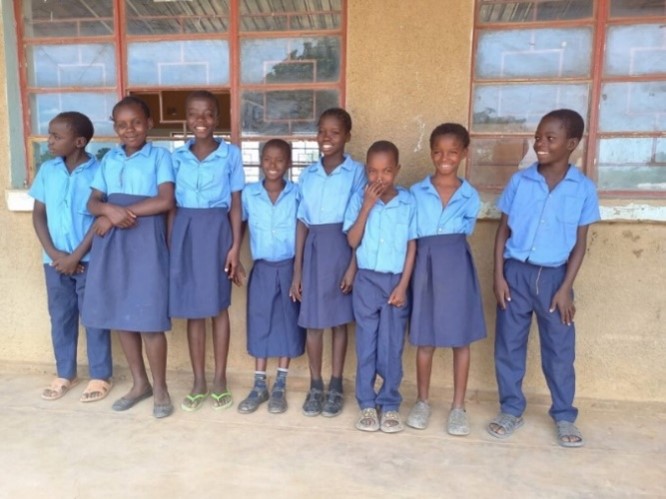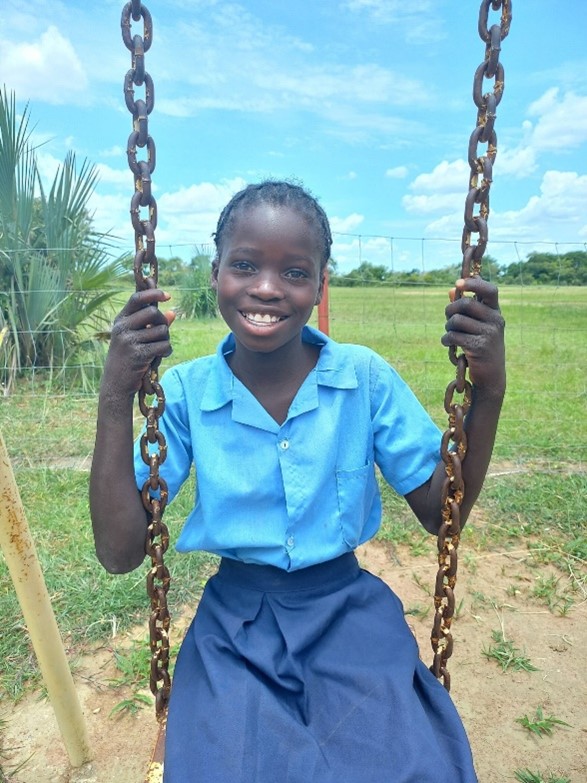EVE Project’s Trained Stay In School Committee Reintegrates 65 children back in school, provides supplies for eight children at Shamutiki Community School

In a collaborative effort to advance Sustainable Development Goal 4 (Quality Education), World Vision Zambia, in partnership with the Education Above All (EAA) Foundation’s Educate A Child Programme and Forum for African Women Educationalist in Zambia Forum for African Women Educationalist in Zambia (FAWEZA), has been working to ensure the retention 7,000 children at-risk of dropping out of quality primary education, under the Empowering Vulnerable Children with Education (EVE) project in Namwala district of Southern Province.
To achieve the EVE project target, World Vision Zambia and its partners have trained teachers and engaged community members in identifying early warning signs. The initiative includes strengthening school reporting systems and establishing Stay in School Committees (SISC) to lead these efforts.
The SISC Vice Chairperson at Shamutiki Community School, Phillis Handungu, expressed happiness with the committee's impact on promoting education for vulnerable and at-risk children.
“Through the SISC, we have reintegrated 65 learners, 38 girls and 27 boys, back into school, and we have also provided essential school supplies to 8 of these children,” said Mr. Handungu. “We are cognizant of the fact that most parents in this area struggle to provide for their children; as such, we took it upon ourselves to render the needed support through the provision of materials.”
He emphasised that the achievements were the outcome of the comprehensive training received from the EVE project.
“Our results were achieved after comprehensive training, including Empowered World View (EWV), which helped us change our perception of life,” explained Mr. Handungu. “We conducted extensive awareness meetings in our community to educate members about children’s rights and the importance of education.”

Empowered Worldview is an enabling project model that can lead to deeper and more sustainable improvements in child well-being when combined with other project models. It is a behaviour change model that seeks to address dependency mindsets and promote individual empowerment among impoverished people.
The SISC members were equipped to identify risk factors and devise strategies for supporting the most vulnerable children in remaining in education.
“The SISC’s commitment extends beyond advocacy. Our committee members are part of a savings group, and many of us have established income-generating activities,” Handungu added. This makes us financially stable to meet basic needs for our families and ensure that our children can continue their education.”
Bridget, one of the eight beneficiaries, expressed her joy at returning to school.

“Now I can play confidently with my school friends at home because we learn together at school,” she said.
Bridget had dropped out due to her mother’s unstable income. However, her mother’s participation in the savings group and the training she received allowed her to settle in the Shamutiki Community and support Bridget’s learning through a small, stable enterprise.
The EVE Project Manager, Sydney Simubwa, explained that the project thrives on collaboration with parents and educational authorities to attain its goal.
“For us to attain the target of retaining 7,000 children at risk of dropping out of primary education, we need everyone, including parents and children themselves, to join us in ensuring that even the most vulnerable children have a chance of enjoying productive lives,” said Mr. Simubwa.
He emphasised that the EVE project remained committed to partnering with communities, overcoming obstacles, and improving the lives of vulnerable children and families.